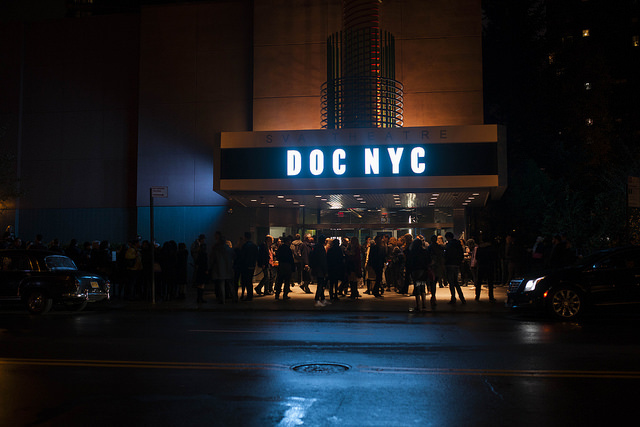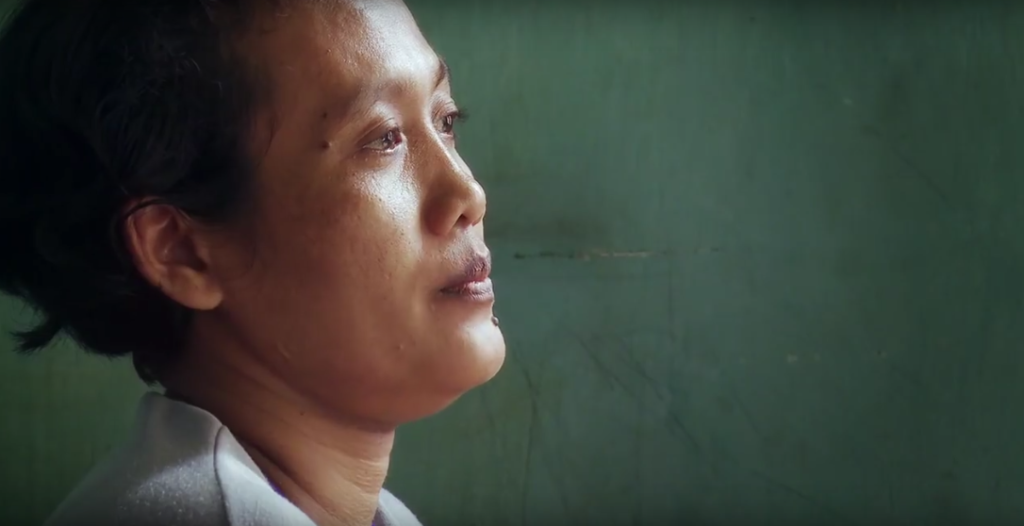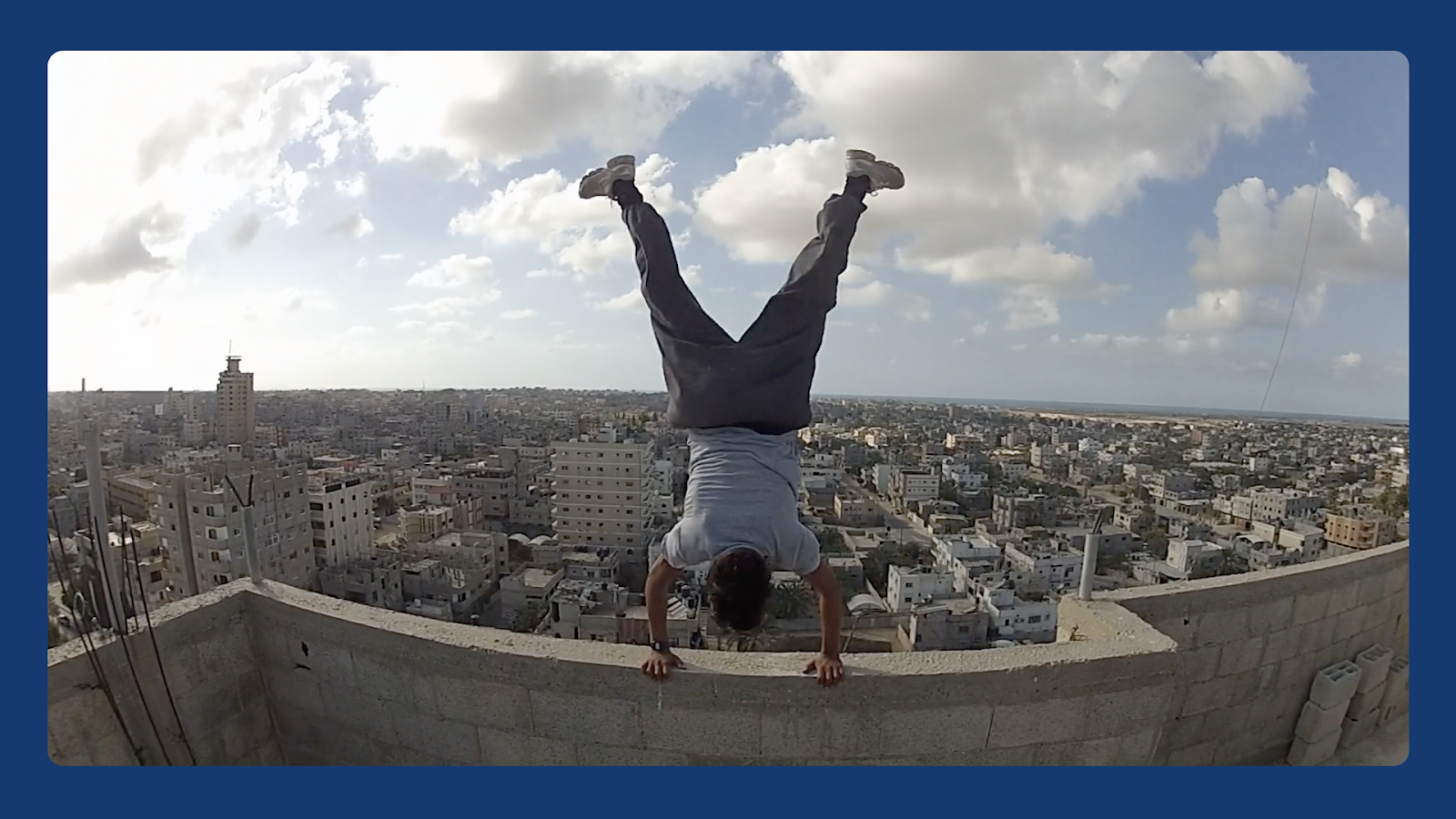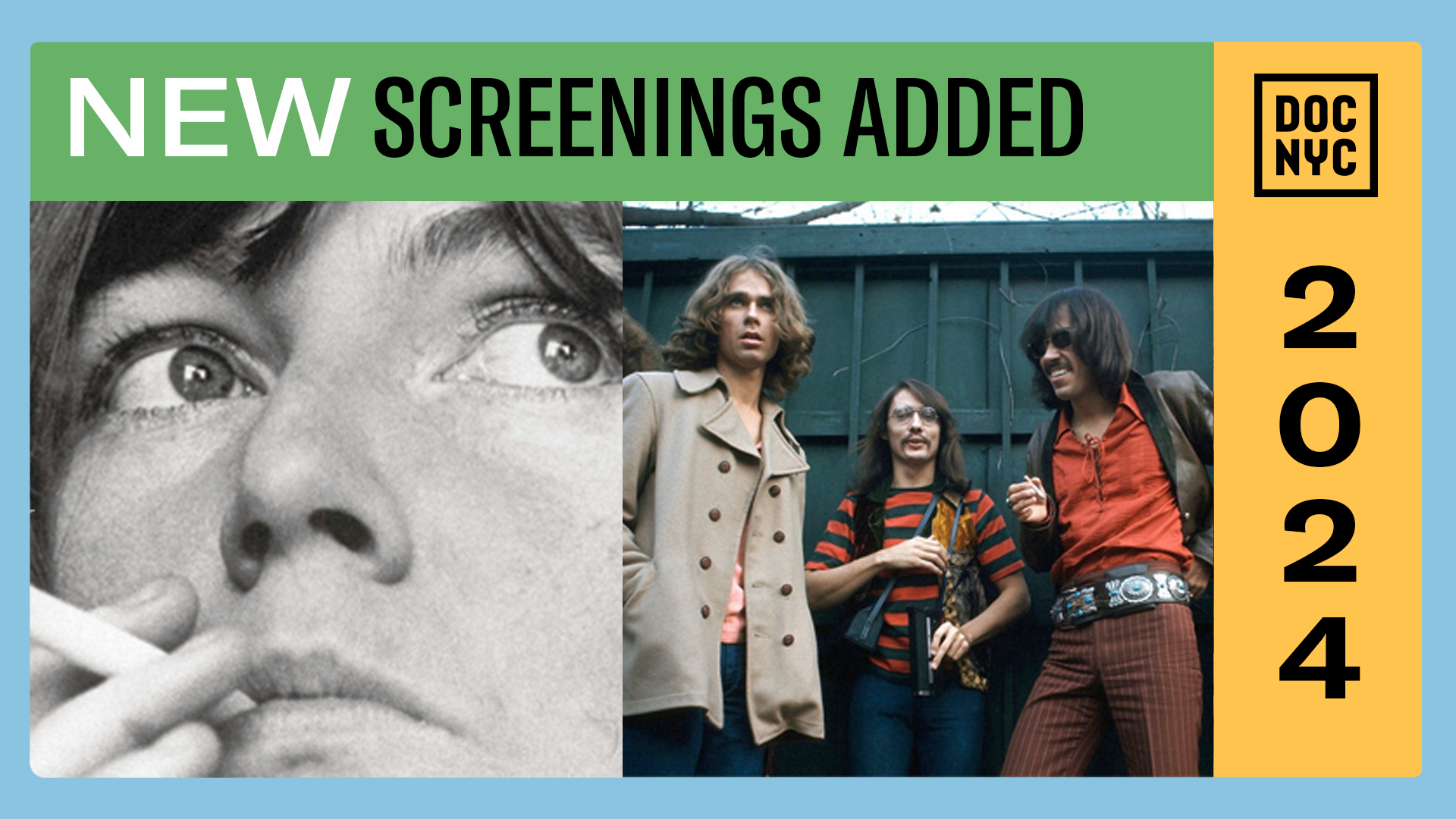Acknowledging an Open Wound in Joshua Oppenheimer’s ‘The Look of Silence’ DOC NYC alum returns with a powerful and important film about Indonesia’s violent history


Written by Jenna Belhumeur
In The Look of Silence, Oscar-nominated director Joshua Oppenheimer continues his exploration of a chilling society where a genocide in which over one million innocent people perished is merely dismissed as “the past”; Where the stark lack of moral regret coupled with an unwillingness to accept responsibility for actions done is both unsettling and fascinating at once.
In Friday evening’s screening of the film, Oppenheimer provided updates on the film’s main characters and spoke to audiences about the film’s reception within Indonesia.
Oppenheimer said the film has already screened 4,000 times in Indonesia and the government has even become involved in its distribution. Adi, the film’s main character, is now some kind of national hero, while some screenings did have to be cancelled due to threats by paramilitary groups. They are angered about the national discussion about 1965 sparked by this film, Oppenheimer said.
And the reaction by present-day Indonesian society is warranted. The film indeed leaves viewers deeply moved and reflective.
The film’s premiere came close on the heels of Oppenheimer’s previous film, a prequel titled The Act of Killing (2012), which portrays a different storyline, but within the same subject matter of Indonesia’s violent past.
The Act of Killing has been noted for its masterful ability to “explore genocide not only as a historical cataclysm, but also as a result of innumerable instances of actual, ordinary behavior” (The New York Times). The film was nominated for an Oscar for best-documentary in 2014. Hours after missing out at the Academy last year, Oppenheimer told the Guardian, “The film has caused a level of change in Indonesia beyond anything we could have hoped for three years ago. We didn’t make the film to win an Oscar, but to open up possibility for real change.”
After winning the best documentary award for The Act of Killing at the 67th BAFTA awards, Oppenheimer stated on stage that the United States and the United Kingdom have “collective responsibility” for “participating in and ignoring” the crimes.
This point is reiterated again in The Look of Silence, where in one unsettling scene a member of the Komando Aksi killing squad says, “We did this because America taught us to hate Communists.” Other convoluted truths also emerge throughout the documentary – such as the idea that “you’re allowed to kill your enemies” and “if they’re bad people, you can hack them up.”
In the documentary, the genocide is dismissed as merely “politics” by those involved. As one former Komando Aski leader who now heads the legislature puts it, “Politics is the process of achieving one’s ideals in various ways.”
Oppenheimer’s enthusiasm about the real change his film has brought about in the morally damaged nation was evident at Friday night’s Q&A following the screening.
Oppenheimer explained how The Look of Silence really only became possible to make due to the fact that The Act of Killing had yet to premiere to the public at the time of shooting. Thus the nature of Oppenheimer’s intentions in making his documentaries was still, to a certain extent, unclear to those he was filming. This allowed Oppenheimer to capture stunning interviews and confrontations between a man whose brother was killed and his brother’s unrepentant murderers. Those involved in the killings go so far as to enthusiastically take Oppenheimer to the place they committed the atrocities, and give a sickeningly excited play-by-play of how the murders were carried out. The descriptions are surreal. “Human blood is both salty and sweet,” one death squad leader recounts.
It is important to note that the party in power in Indonesia is still that who supported this genocide, thus there has been no formal retribution of the past and no trials. The murderers still walking freely among society.
In explaining the film’s title during the Q&A session, Oppenheimer said that the Indonesian society portrayed in his film highlights what silence looks like: for an atrocity to occur and for no one to say anything about it; for life to just go on with no regret for the past.
“This open wound will never heal unless people stand still and are quiet and acknowledge it,” he said.
Jenna Belhumeur is a recent graduate of Columbia’s Graduate School of Journalism, and currently works within the video department at The Wall Street Journal. Her first documentary short, BACK, explores the experiences of an ex-prisoner reentering society after 40 years behind bars. The film premieres at this year’s DOC NYC festival. Follow her on Twitter @jenna_bel


